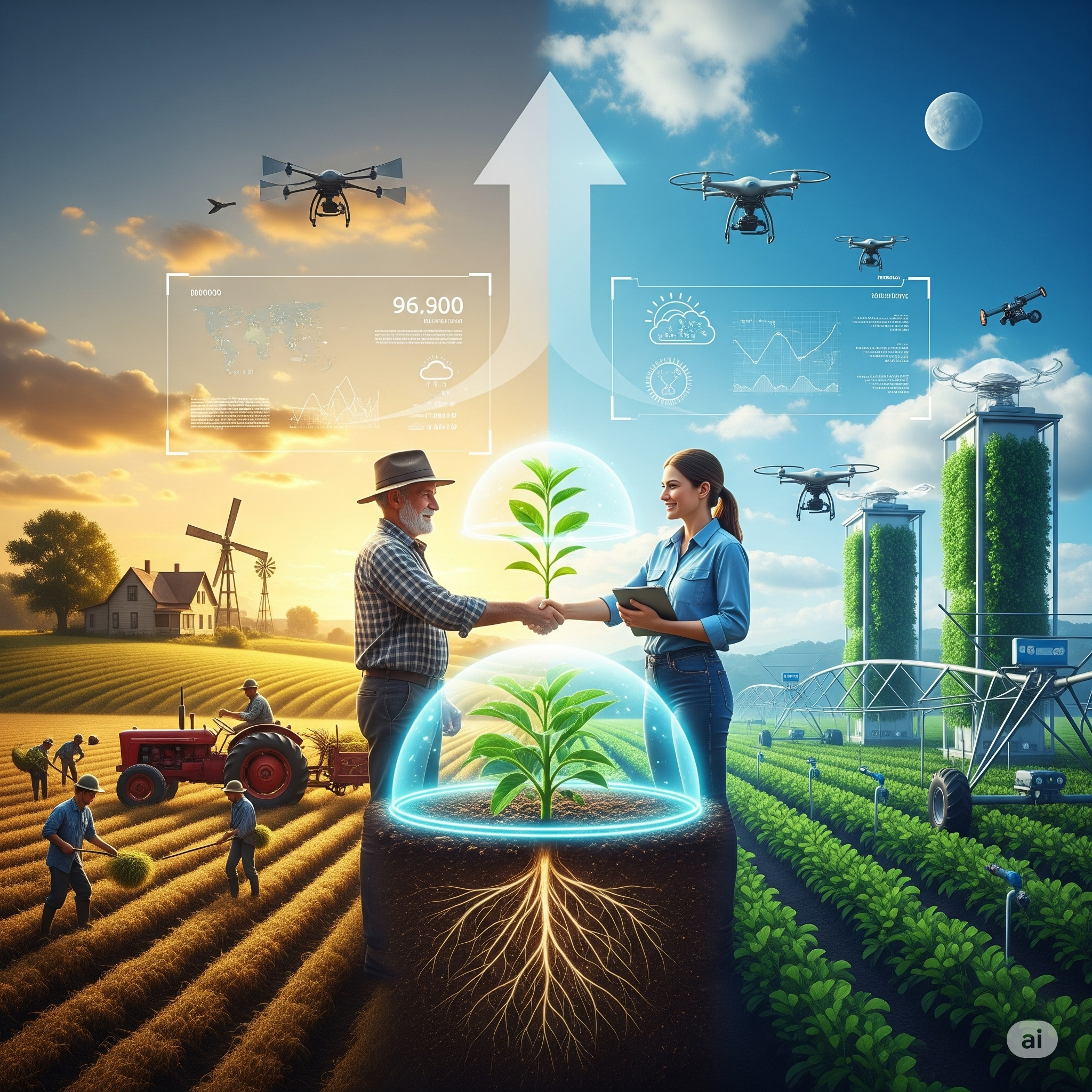
The Agri-Tech's Evolving Landscape
The agricultural sector stands at a critical juncture, where the traditional meets the technological in a bid to tackle the mounting challenge of feeding a burgeoning global population sustainably. With the backdrop of climate change, resource scarcity, and rising consumer demands for sustainably sourced food, the sector has seen a surge in interest in agri-tech solutions that integrate advanced technologies like IoT, AI, and robotics.
The precision agriculture market, a cornerstone of this technological shift, is projected to exceed $15 billion globally by 2025. This indicative growth is driven by the evident need to optimize resource utilization and enhance crop yields, making the integration of technology in farming practices less of a choice and more of a necessity. These technologies promise to deliver more granular data and actionable insights, enabling farmers to better manage their operations, from soil health to crop monitoring.
Yet, despite the promising advancements, the path to widespread technology adoption in agriculture is fraught with challenges. High initial costs remain a deterrent for many farmers, especially in regions where margins are already razor-thin. This is compounded by the inertia of traditional farming practices, which can be resistant to change due to both cultural and operational reasons. Additionally, navigating the complex web of regulations adds another layer of difficulty for tech implementations.
Startups, with their inherent agility and innovative spirit, are uniquely positioned to address these challenges. By focusing on niche problems and underserved areas, these smaller entities can pioneer solutions that not only enhance farm productivity but also align with broader sustainability goals. For instance, startups are leading the charge in crafting technologies that transform waste into biofuel, thus addressing environmental impacts while creating additional revenue streams for farmers.
A key advantage of startups in the agri-tech sector is their ability to collaborate with larger, established agricultural entities, providing fresh perspectives and flexible solutions that mesh well with existing practices and needs. Startups like those focused on autonomous soil diagnostics exemplify how targeted technological interventions can lead to significant positive impacts.
The forecasted growth in the agri-tech sector underscores a substantial opportunity for these innovative ventures. However, the ability to effectively navigate market constraints, regulatory landscapes, and technological barriers is crucial. Startups must leverage cutting-edge technologies and strategic collaborations to translate promising ideas into practical and scalable solutions that the agricultural sector urgently needs.
In conclusion, while the agri-tech landscape presents a complex mix of challenges and opportunities, the pressing need for efficient, sustainable food production methodologies remains a constant. Startups equipped with the right tools, insights, and strategies have a pivotal role to play in driving the next wave of transformation in agriculture. By doing so, they not only contribute to solving current agricultural challenges but also pave the way for a more resilient and innovative future in farming.
 Back to Blog
Back to Blog 27-03-2025
27-03-2025